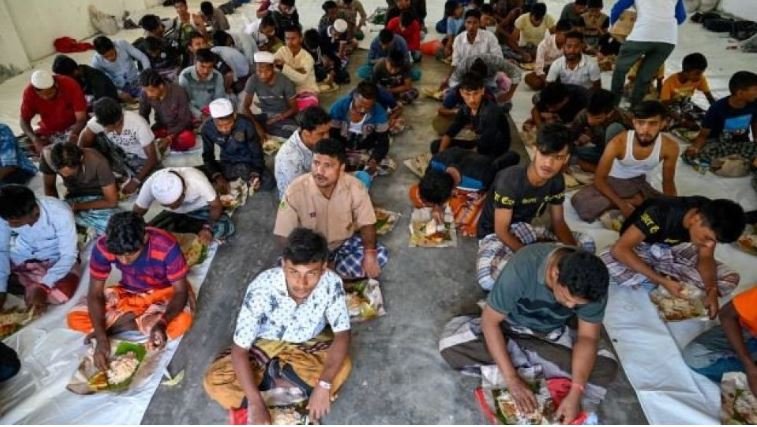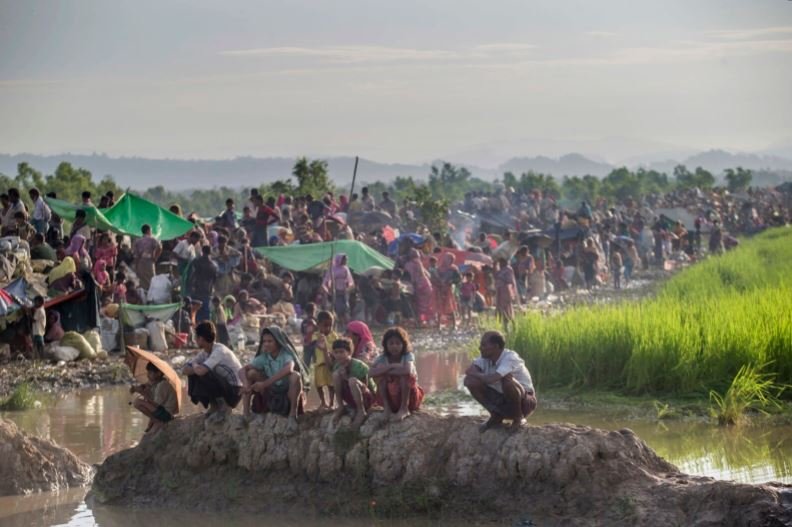In the ocean, Rohingya are drowning. The fault lies with Asia’s rulers
Leaders from Southeast and South Asia are breaking the law and being immoral by failing to assist Rohingya “boat people.”
A boat carrying 185 Rohingya refugees washed ashore on the coast of Indonesia’s Aceh region in early January. In an effort to escape congested and uncomfortable camps in Bangladesh, they had spent weeks at sea in harrowing circumstances. Children and women made up more than half.

They are regrettably not alone. At least three further boats carrying hundreds of refugees have arrived in Aceh since November of last year following similarly treacherous voyages, with at least 20 people dying at sea.
Numerous Rohingya, especially women and children, resorted to risky boat trips in 2022, according to the UN High Commissioner for Refugees (UNHCR). Local fisherman in Aceh frequently rescue boats that have become stuck in the Andaman Sea out of compassion for the desperate refugees.
I could not be more appreciative to the Acehnese for their bravery and selflessness as a Rohingya who has spent most of my life fighting to stop the genocide against our people.
The fact that common people have been forced to take over for the region’s governments is regrettable at the same time. States throughout South and Southeast Asia, ranging from India to Indonesia, have been ignoring the plight of Rohingya “boat people” for years.
They have even forcibly pushed the refugees’ boats back out to sea while denying them a chance to dock on their shores.

This is prohibited because it violates the international law principle of non-refoulement, which forbids countries from returning people to places where they run the risk of suffering severe human rights violations. Additionally, it is immoral behavior, and to stop further maritime fatalities, regional states must quickly alter their direction.
In order to flee the genocide occurring in our home Rakhine state, Rohingya people have been leaving Myanmar on boats for years. Refugees from Bangladesh have put their lives at danger on perilous maritime voyages more frequently in recent years.
In camps in Bangladesh, there are about a million Rohingya refugees. The Bangladeshi government has graciously offered a safe home to those who are leaving, but the refugee camps are small and overcrowded, and there are hardly any prospects for Rohingya to obtain an education or a respectable profession.
A boat trip is frequently a last-ditch effort to find another place where one can live with dignity.
As governments cracked down on human trafficking networks, the Asian “boat crisis” captured the attention of the world in 2015. Hundreds of refugees perished at sea. The number of marine voyages has increased again in recent years after a brief decline.
At least 1,920 Rohingya are estimated to have boarded boats in 2022, up significantly from 287 in 2021, according to UNHCR.
Not considering the other 180 individuals whose boat vanished in December and are believed to be dead, at least 119 people were reported dead or missing last year.
The sea is in a terrible state. Survivors have related their experiences of spending several months stuck on small boats with little to no access to food, water, or medical care. Human traffickers frequently exploit them, demanding their life savings in exchange for deck space, and they have even threatened to kill them.
While Association of Southeast Asian Nations (ASEAN) nations and other regional governments have pledged not to abandon refugees at sea, several of them, such as India, Malaysia, Thailand, and Indonesia, have actually closed their borders to refugees.
They have occasionally just given the barest necessities like food and medical attention before pushing vessels back out to sea.
The tragic experiences of those who survived and the tragic fatalities that occurred in 2022 must serve as a wake-up call for the regional states to finally take effective and concerted action. With a focus on search and rescue and responsibility sharing across borders, ASEAN must adopt a common strategy for maritime refugee operations.
It is imperative that no one fleeing persecution is turned away; rather, refugees should be provided with the housing and healthcare they require, and their right to apply for asylum must be recognized.
The Bali Process is an international mechanism that was established in 2002 in part to coordinate action on marine refugee and human trafficking.
Member nations of the Bali Process must make sure they employ the frameworks established to safeguard persons escaping violence and death. The Bali Process includes all 10 ASEAN members as well as countries in South Asia, including India.
Following the “boat crisis” in 2016, its countries ratified the Bali Declaration, in which they vowed to improve coordination between their efforts to locate refugee legal avenues and conduct search and rescue operations. But as of now, this has essentially just been a promise on paper.
The oppression of the Rohingya in their native Myanmar is currently the crisis’ primary source, but other nations are also unwilling to acknowledge this.
Our people will feel driven to risk their lives in order to find safety and dignity somewhere else as long as the genocide against the Rohingya continues.
Even ASEAN members that have criticized the Myanmar military since the coup attempt in 2021 conduct business with Myanmar, which aids in funding the military and the crimes they perform against us.
Instead, they ought to support all international legal procedures that seek to bring accountable Myanmar officials for atrocities against the Rohingya.
Aceh’s fishermen have so far demonstrated the humanitarian leadership that ASEAN has avoided. We are all Rohingya appreciative for their kindness. However, the boats will keep coming, and the agony will go on, as long as ASEAN nations ignore the origins and effects of the Rohingya catastrophe.




